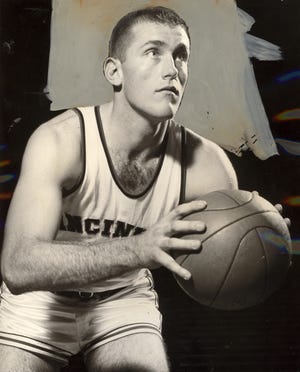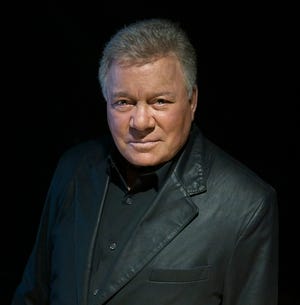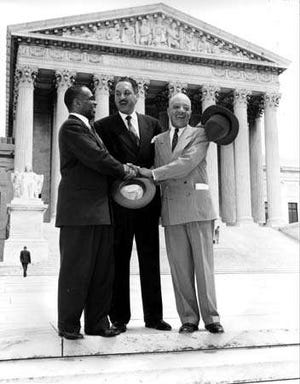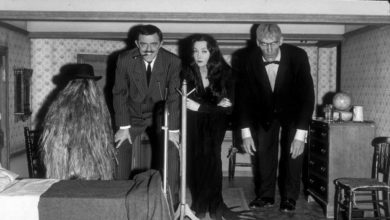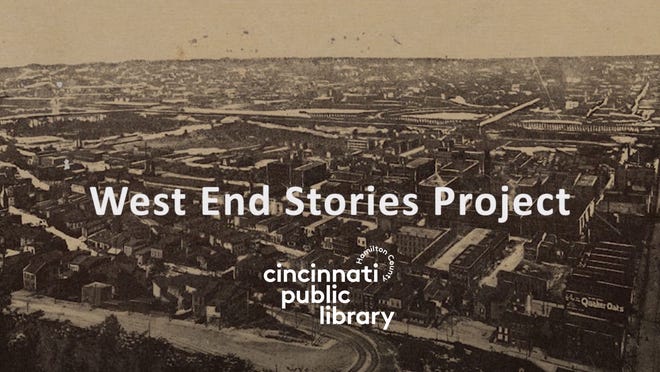

“I’ve never ever been ashamed to say I lived in the West End. I’ve always been very proud of it.”
Those are the words of Tawanda Johnson that start off an episode of the “West End Stories Project,” a new podcast produced by the Cincinnati and Hamilton County Public Library.
The podcast shares oral histories of individuals who lived in West End in the second half of the 20th century. The predominately Black neighborhood has gone through many rounds of change. Recently, the construction of the new West End Stadium for FC Cincinnati has been at the cost of old buildings and residences as well as the historic Revelation Baptist Church.
“With so many changes happening again in Cincinnati’s West End, we have to preserve the residents’ stories,” said Keloni Parks, podcast host and manager of the West End branch library. “There are so many African Americans in Cincinnati who are tied to the West End in some way, including my family, and it’s imperative that these stories are collected before they’re lost.”
Originally planned as a video series, because of COVID-19, the project became a podcast with stories recorded over the phone by Parks and co-producer Kent Mulcahy.
Everyday people talk about their memories of growing up in West End. Johnson, who works in the library system, recalls catching Smokey Robinson and the O’Jays perform at the old Regal Theater on Linn Street, and being a latch-key kid in Lincoln Court, a housing project built in 1942 exclusively for Black families.
“It was a very friendly environment,” Johnson says in an episode. “We all watched out for each other. … The older ones always took care of the smaller ones. And the neighbors always took care of the children where they knew that the parents worked. So if you did something wrong, the neighbors let your mom know as soon as she comes in the Court.”
Musician Nathaniel Leroy Davis remembers jumping in the fountain at Union Terminal, and a white girl who spread out her skirt to cover a seat at Crosley Field so he couldn’t sit down.
“Sometimes you can’t expect for people who don’t think that your history is important, so you have to make sure it’s important yourself and then magnify and exemplify that,” Ralph Moon said in a preview for the series.

Much of what people remember from those days is gone.
“With its ever-changing boundaries, the West End was a citadel for a population in constant migration from the South to the North in search of positive economic, social, political and educational opportunities. Uprooted and destroyed in the late 1950s and early ’60s, the West End of old bears little resemblance to the current West End,” historian John Harshaw Sr. wrote in his book “Cincinnati’s West End.”
Once a sprawling neighborhood, spanning from the Ohio River to Crosley Field, West End has been cut up and cleared out. The addition of Interstate 75 meant clearing away the densely packed West End and displacing 10,000 families – 98 percent of them African American – to Over-the-Rhine, Avondale and Bond Hill. All that is Queensgate now, mostly warehouses and factories.
“The stadium coming in and it being so similar to other changes happening in the community” was inspiration for the podcast, Parks said. As was the death of Harshaw, a chronicler of Black history, in 2019.
The stories need to be recorded before we lose those voices, Parks said.
She is looking for more folks to share their stories of West End. On her wish list: Judge Melba Marsh, former Mayor Mark Mallory and photographer Melvin Grier.
“All types of stories, all types of people, all types of lives,” Parks said. “And my dad.” Her father grew up in Lincoln Court, and has plenty of memories to share.
How to listen and share your stories
The first three episodes are available wherever you find podcasts, with a new one out each month.
If you’d like to share your story of living in West End, call 513-369-6900 or email [email protected].
Source link

